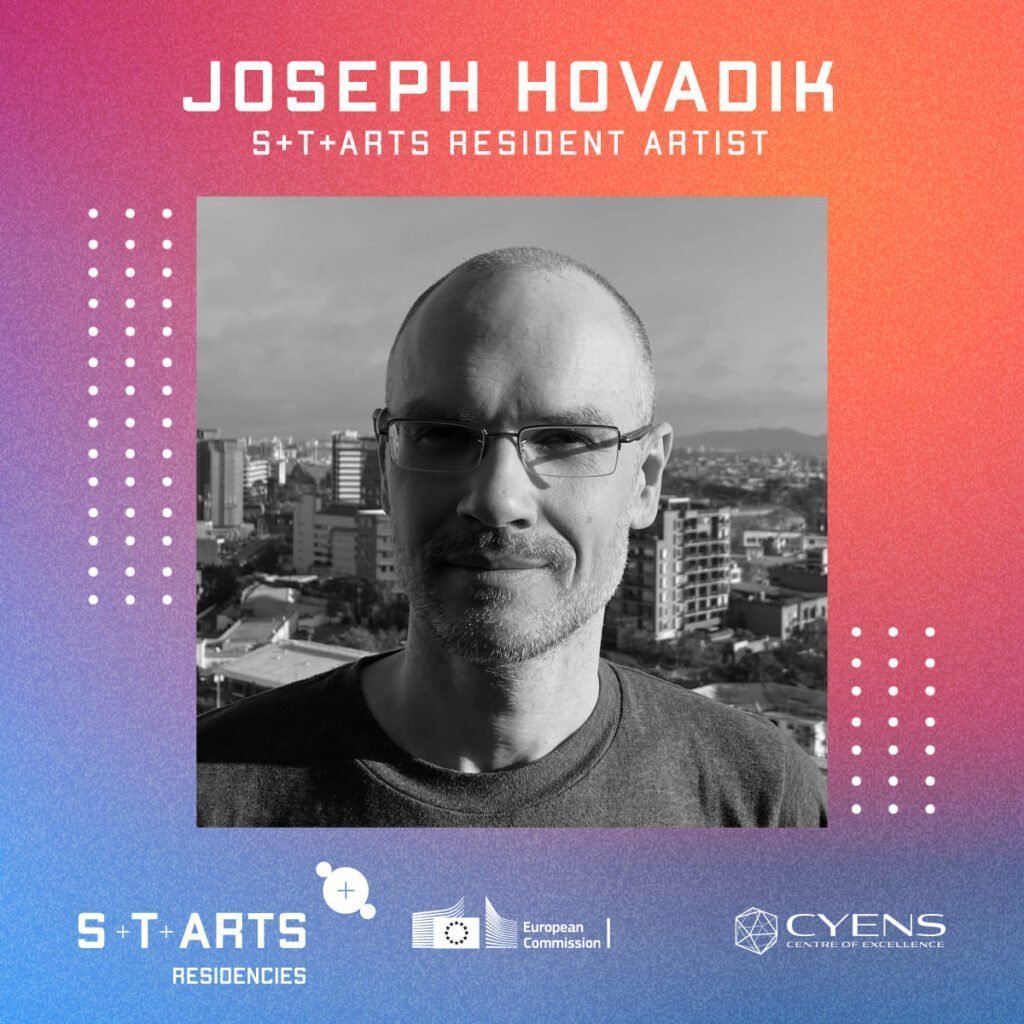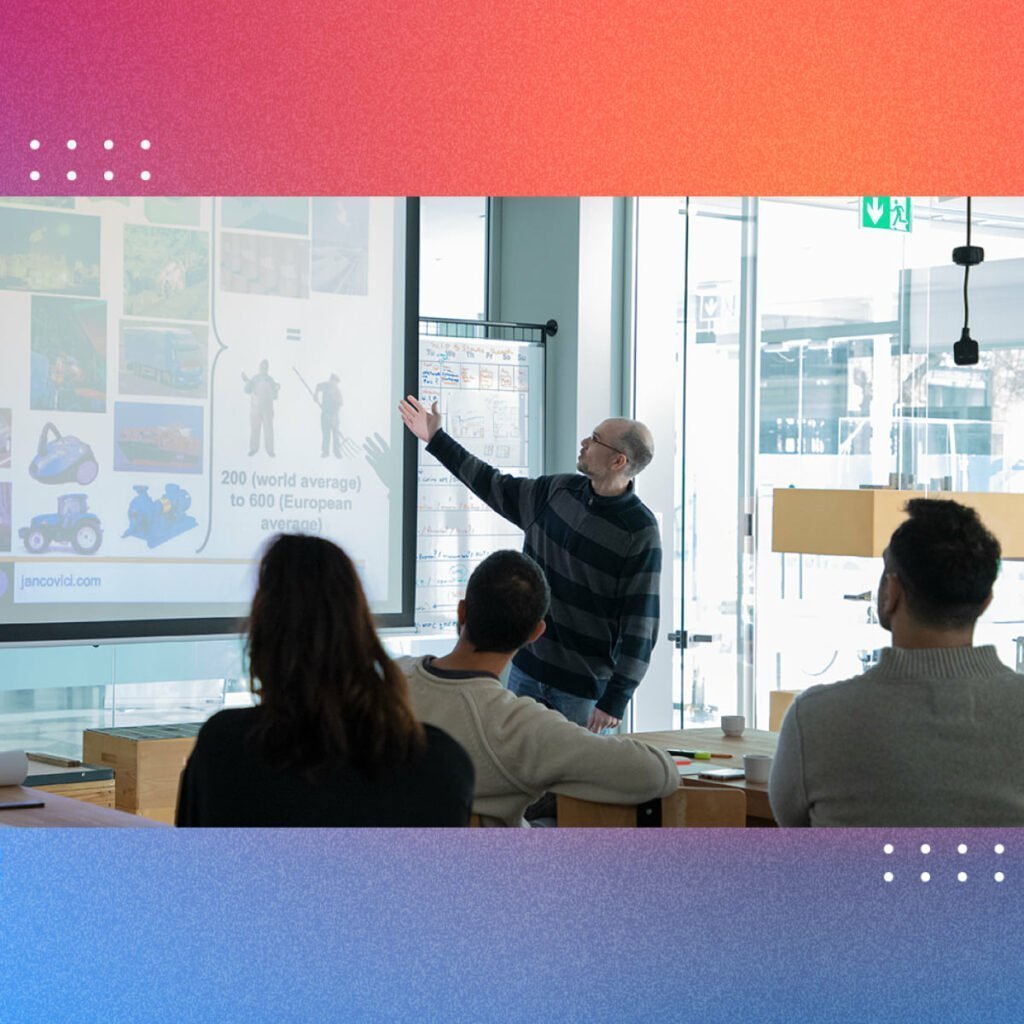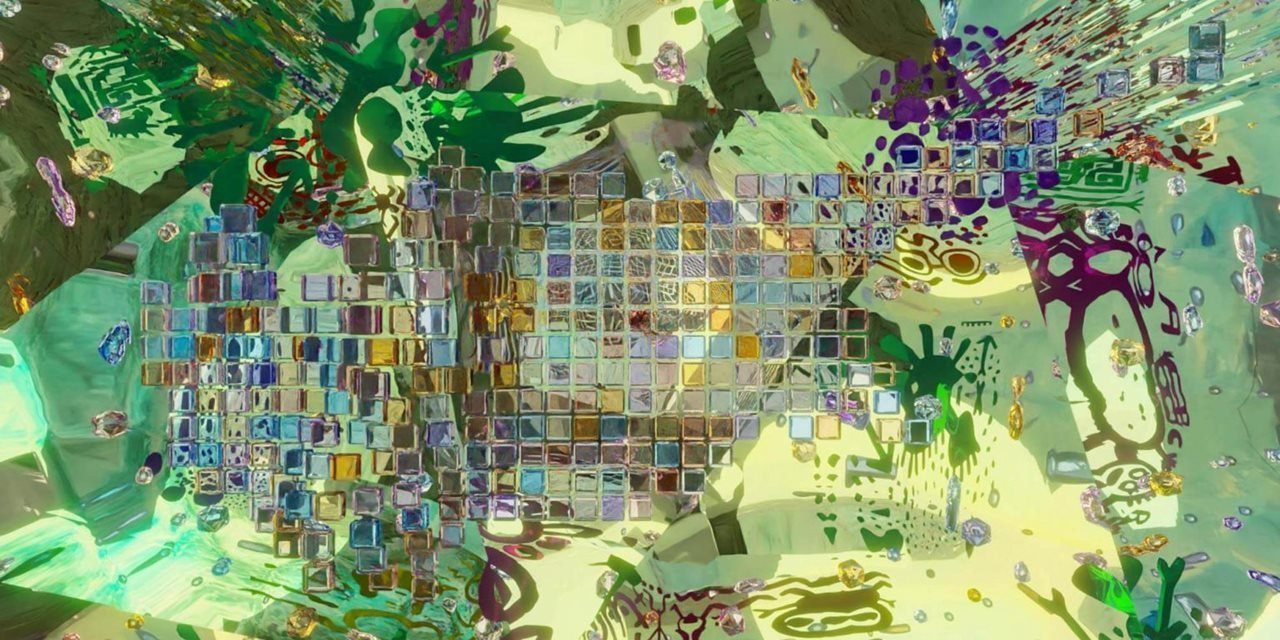The S+T+ARTS Residency hosted by CYENS Centre of Excellence, kicked-off at the beginning of February. S+T+ARTS Residencies is part of S+T+ARTS – an initiative of the European Commission that explores and exploits the innovation potential of the place where Science + Technology + the ARTS intersect.
Cyprus Vital Signs is one of the over 125 S+T+ARTS Residencies hosted since the launch of the initiative 5 years ago.
We spoke to the artist in residence Joseph Hovadik about his project – Cyprus Vital Signs – and how it looks into the ecological footprint of Cyprus, with a special focus on tourism related activities. The project will develop around local physical and digital data that address issues of social and ecological sustainability, imagining innovative approaches and artistic interventions that critically examine the tourism industry’s ecological footprint. While Cyprus is investigated in depth , it acts also as a paradigm for other areas of the Mediterranean.

Joseph, tell us a bit about Cyprus Vital Signs? How did you come up with the idea? What was the motivation behind creating this proposal?
Cyprus Vital Signs is an artistic exploration of the many facets of tourism in Cyprus and its impact on the environment and long term sustainability. The idea consists of integrating into the production of the artwork the processes of inspecting, describing, transforming and modeling data generated by tourist activities. The motivation is to determine through the artwork the drivers that have shaped tourism as we know it today, and to imagine new forms of sustainable tourism.
What are your expectations from this particular S+T+ARTS Residency? What excites you most about it?
As someone who is becoming increasingly concerned about the global environmental crisis, I am interested in the idea of examining the problem on a much smaller, local and manageable scale. Therefore Cyprus is the perfect place to conduct the artistic experiment. I am also keen on discovering the rich and diverse culture, history and traditions that make Cyprus such an interesting place to visit.

As artists and designers become more actively involved in innovation processes and their role as well as their responsibility expands, do you feel compelled to consider, in the early stages, how your work might translate on a larger scale – or even a more applied environment?
Absolutely. I believe art can help us answer some fundamental questions on who we are, and what kind of future we want. These are the kinds of questions we must address in order to make progress on solving environmental problems. Infinite material growth on a finite planet is not possible and choices have to be made. We cannot have the cake and eat it at the same time. Art can help us see the present and imagine the future.
The project would imply more of a cultural shift and an awareness at a collective level that can be rather difficult to achieve. How can we get there?
It implies a radical shift and in record time. The IPCC and IPBES reports are excellent resources for understanding the magnitude and scale of the problem; these reports must be read and studied by everyone. COVID-19 has shown that rapid change in collective behavior is possible. However many people today are not even aware that a problem exists.
How do you feel about synergies between technologists and scientists with artists and other creatives as means to achieve a sustainable, fair and inclusive future?
As an artist who likes technology, I certainly feel good about exploring new creative possibilities enabled by science and technology. However I think our best hope for achieving sustainability is to rediscover the ways of our ancestors who lived more or less sustainably in the past, or rediscover the cultures and traditions (including the arts and technologies) at the periphery of modern civilization who continue to live sustainably today, or simply rediscover how the natural world copes with existence. Somehow we became addicted to our technological gadgets and lost touch with what is real.
A last thought about this unfolding future; what is the main urgency we should all be addressing and what is the way forward in your opinion?
This is exactly the question we should all ask ourselves at the end of today.

